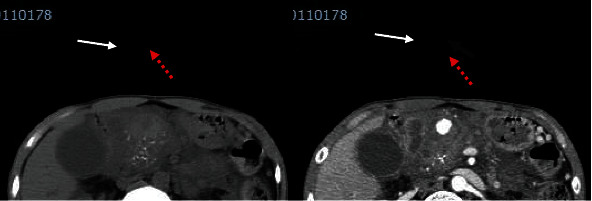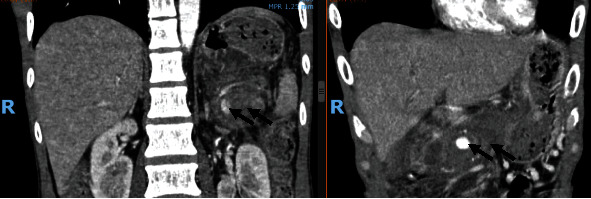Upper Gastrointestinal Bleeding Caused by Rupture of Pancreatic Pseudoaneurysms.
Q3 Medicine
Case Reports in Critical Care
Pub Date : 2023-09-27
eCollection Date: 2023-01-01
DOI:10.1155/2023/7888990
引用次数: 0
Abstract
Pseudoaneurysm rupture in patients with pancreatitis is a rare but fatal etiology of upper gastrointestinal bleeding. We report a rare case of upper gastrointestinal bleeding in a patient who presented simultaneously with two pseudoaneurysms, a potential cause of severe gastrointestinal bleeding. Angiography was successfully performed with coil embolization of the target arteries and both pseudoaneurysmal sacs. The patient was discharged 9 days after admission without further events within a 3-month follow-up period.



胰腺假性动脉瘤破裂引起上消化道出血。
胰腺炎患者的假性动脉瘤破裂是上消化道出血的一种罕见但致命的病因。我们报告了一例罕见的上消化道出血病例,患者同时出现两个假性动脉瘤,这是严重胃肠道出血的潜在原因。血管造影术成功地对靶动脉和两个假动脉瘤囊进行了线圈栓塞。患者在入院后9天出院,在3个月的随访期内没有发生进一步的事件。
本文章由计算机程序翻译,如有差异,请以英文原文为准。
求助全文
约1分钟内获得全文
求助全文
来源期刊

Case Reports in Critical Care
Medicine-Critical Care and Intensive Care Medicine
CiteScore
2.10
自引率
0.00%
发文量
26
审稿时长
12 weeks
 求助内容:
求助内容: 应助结果提醒方式:
应助结果提醒方式:


